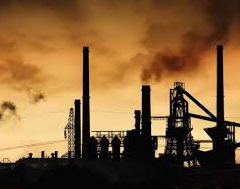As talks stall and tariffs bite, ministers explore public ownership to protect thousands of jobs and preserve UK’s steel capacity.
The future of British Steel hangs in the balance as Prime Minister Keir Starmer and Chancellor Rachel Reeves consider taking the company into public ownership, reviving plans first floated in late 2024.
The steelworks in Scunthorpe, currently owned by Chinese conglomerate Jingye, employs around 3,500 workers and is critical to Britain’s rail infrastructure. With mounting pressure from US import tariffs and failed attempts to fund cleaner production methods, nationalisation is being treated as a serious option by Downing Street.
A decision must come swiftly: the blast furnaces may require urgent raw material orders within 48 hours to remain operational. If shut down, restarting operations would likely be prohibitively expensive. Ministers are also discussing short-term interventions, such as state procurement of essential supplies to keep the furnaces burning.
Sources in Whitehall confirmed that both Starmer and Reeves view the British steel industry as a strategic national asset, with all possibilities—including nationalisation—under active review. The chancellor has been in contact with union leaders, affirming her backing for the sector.
During a parliamentary committee session on Tuesday, Starmer reiterated his commitment to maintaining a domestic steel industry, stating: “We are committed to securing a long-term future for Scunthorpe and British steel.”
Business Secretary Jonathan Reynolds is scheduled to meet British Steel executives for further discussions, while Reform UK leader Nigel Farage has demanded the government intervene within three days to prevent the furnaces from closing. Farage’s proposed rescue plan also includes state acquisition of Liberty Steel’s electric arc furnaces and recruitment of international steel specialists.
The industry’s troubles have been compounded by steep US tariffs imposed under Donald Trump’s administration. These include a 10% duty on British imports, along with targeted taxes on cars, steel, and aluminium.
Starmer told MPs he expects the tariffs to persist and said his government is open to retaliatory measures, though he prefers to pursue negotiation. He linked the trade tensions to broader disagreements over the UK’s digital services tax and online safety laws affecting major US tech firms but ruled out any NHS concessions in future trade negotiations.
Amid rising public concern, recent polling from More in Common found that most Britons support retaliating against US tariffs. Meanwhile, the Liberal Democrats have called on Starmer to guarantee parliamentary scrutiny over any prospective trade agreements with Washington.
Beyond steel, Starmer addressed a range of pressing national and international matters during the committee hearing. He defended upcoming welfare changes, claiming they promote dignity, and criticised regulatory inefficiencies. He also pledged to review the social care system, addressed foreign interference threats, and endorsed an inquiry into the killing of 15 aid workers in Gaza.
On the economic front, the prime minister expressed confidence in the UK’s resilience. While rejecting comparisons with the Covid-era stimulus packages, he emphasised ongoing efforts to remove barriers to growth—such as reforms to planning, clinical trials, and green vehicle regulations—as tools to shield the country from potential recession.
As the government weighs its next move, the future of British Steel stands as both a symbolic and practical test of its industrial strategy, economic diplomacy, and political resolve.



Leave a Reply